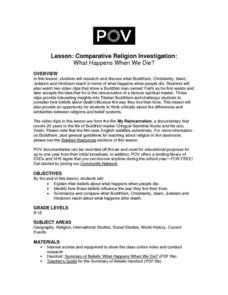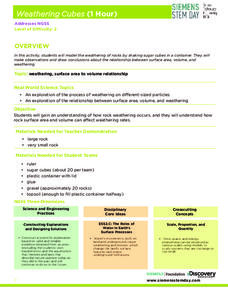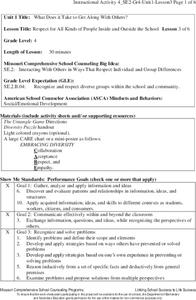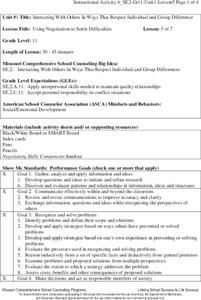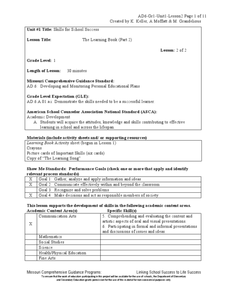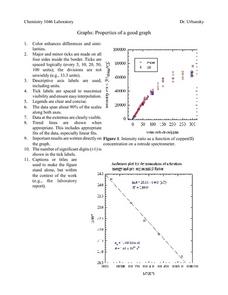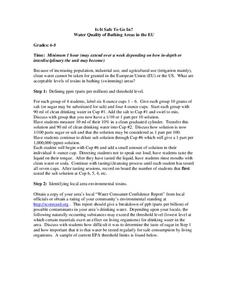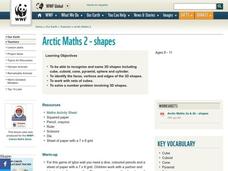Sargent Art
Facial Proportion Challenge: Freaky Faces
Young artists have fun making freaky faces when they accept the challenge of making proportional portraits. They must find pictures in magazines, cut out two eyes, a nose, and a mouth, and then rescale these images into a portrait.
Little 10 Robot
Operation Math Code Squad
Your mission, if you decide to accept it, is math skills practice. In this app, Mission Impossible meets basic number operation skills, and your students are the secret agents.
American Documentary
Comparative Religion Investigation: What Happens When We Die?
How do different religions offer explanations for what happens when we die? Invite your learners to consider the variance and complexity of religious beliefs, and to research and compare/contrast the concept of death and afterlife...
Serendip
Where Does a Plant's Mass Come From?
Where does the mass for a growing tree come from? Scholars consider a few different hypotheses and guess which is correct. They then analyze data from different experiments to understand which concepts science supports.
University of North Carolina
Sciences
Science writing follows many of the same principles as writing in language arts, but some structural details differ. Individuals read an online science handout that covers how to write with precision, choose appropriate details, and use...
Discovery Education
Weathering Cubes
Weathering is not necessarily a result of the weather. Scholars conduct an experiment to explore the effect of surface area and volume on the weathering process. They create their own sugar cube rocks using the same number of cubes—but...
Missouri Department of Elementary
Respect for All Kinds of People Inside and Outside the School
Why is it important to embrace diversity? Scholars explore the topic by learning about the CARE acronym: Collaboration, Acceptance, Respect, Empathy. They also complete a diversity puzzle worksheet and play a collaborative game that...
Missouri Department of Elementary
Using Negotiation to Settle Difficulties
Negotiating can be a win/win experience if the involved parties apply the skills and techniques offered in a instructional activity about negotiating to settle differences.
Curated OER
Bioethics and Effective Health Care
High Schoolers participate in a class discussion on the ethical issues faced in the health care industry today. In groups, they develop their own definition of bioethics and role play the role of one of the various types of members of...
Curated OER
Ages in Stages: An Exploration of the Life Cycle based on Erik Erikson's Eight Stages of Human Development
Examine Erikson's chart on the various stages one goes through growing up. Individually, they write a paper on whether or not they fit into those categories and how they are different today. In groups, for each stage they role play the...
Curated OER
WebQuest Solar System Colonization Project 2000
Sixth graders investigate the livability of different planets in the universe by researching and organizing information from a number of sources in this unit project. They decide on a location for a space station which they support in an...
Curated OER
The Learning Book (Part 2)
First graders examine and discuss the skills needed to be an effective learner. They sing "The Learning Song" to the tune of London Bridge is Falling Down, and complete a Learning Book activity sheet. Each student draws a picture of the...
Curated OER
Geometry and Measurement
Young geometers explore relationships between units of measure and objects. Three activities provide varied opportunities to practice. Learners calculate the volume of two cylinders made by rolling a piece of paper vertically and...
Curated OER
Properties of a Good Graph
In this chemistry worksheet, students examine the common characteristics of an acceptable graph that is meant to be used to display data.
Curated OER
Exponential Reflections
High Schoolers explore the concept of exponential reflections. They use their Ti-Nspire to reflect the natural logarithm function over the line y=x. Students repeat the process using different exponential functions using a slider.
Curated OER
Revising/Editing (3-5): Editing Marks. Part II and Literary Tools. Part II
Familiarize your class with commonly used editing marks. They apply the use of editing marks to a letter and examine different types of literary tools before making a note card resource for the tools. They add their own examples for each...
Curated OER
Equivalent or Not Equivalent?
Algebra learners look at equivalent expressions in the context of three different operations: division, squaring, and absolute value. In comparing these values, they will identity when expressions are equivalent.
Curated OER
Completing the Square
Solve equations by completing the square. The pupils factor quadratic equations and graph the parabola. They also identify the different terms in the equation and look for patterns.
Curated OER
Is It Safe to Go In? Water Quality of Bathing Areas in the EU
Using your senses, apprehend the effects of contaminants in water. With a global focus, young scientists conduct a safe experiment by tasting sugar and salt water with different dilutions. After reviewing threshold limits, learners write...
Curated OER
Reflexive Pronouns
What a great review of reflexive pronouns! Grammarians of all ages will benefit from this packet. The first page gives descriptions and examples of different reflexive pronouns and common mistakes. The second page holds two, short...
Curated OER
Reading Comprehension 6
A great resource for advanced English language learners or native speakers working on reading comprehension. Before reading, discuss different reading strategies. Then, after they read the selection, have your class complete the multiple...
World Wildlife Fund
Shapes
Investigate the properties of three-dimensional figures with this Arctic-themed math lesson. Beginning with a class discussion about different types of solid figures present in the classroom, young mathematicians are then given a...
World Wildlife Fund
Land of the Midnight Sun
From days of 24 hour sunlight, to endless nights that last for days, the Arctic is a very unique place to live. Examine the seasonal changes that occur in the northern-most reaches of the globe and the impact they have on the plants and...
Concordia University Chicago
The Pietá by Michelangelo Buonarroti
Why is arts education so important? It builds critical thinking, analysis and creative problem-solving skills. Learners review the life of Michelangelo Buonarroti, and then analyze his piece, The Pieta. After that, they'll sculpt a human...




